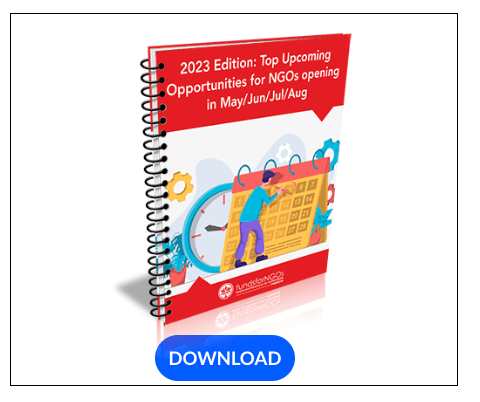
Deadline: 30-Jun-23
Entries for the 2023 African Fact-Checking Awards are now open to journalists, journalism students, and professional fact-checkers – across the continent.
The African Fact-Checking Awards, the longest-running awards programme honouring fact-checking journalism by the media in Africa, are in their tenth year.
Categories
- Category: Fact-Check of the Year by a Working Journalist
- Only journalists who do not work for fact-checking organisations are eligible to enter in this category.
- The entry must have been published or broadcast for the first time by a media- or independent fact-checking organisation based in Africa on any date from 1 July 2022 to 30 June 2023.
- The work may be published in print or online, broadcast on the radio or television, or published in a blog.
- Category: Fact-Check of the Year by a Professional Fact-Checker
- Journalists, fact-checkers or researchers who work for fact-checking organisations or organisations aimed at uncovering dis- or misinformation must enter in this category.
- The entry must have been published or broadcast for the first time by a media- or independent fact-checking organisation based in Africa on any date from 1 July 2022 to 30 June 2023.
- The work may be published in print or online, broadcast on the radio or television, or published in a blog.
- Category: Fact-Check of the Year by a Student Journalist
- To enter the student category, candidates must be from Africa and younger than 35 by 30 June 2023.
- Student candidates must have been enrolled as a student at a university, college or other tertiary institution at some period from 1 July 2022 to 30 June 2023.
- This category excludes part-time students who are working as professional fact-checkers or journalists. Such candidates must enter one of the other two categories.
- The entry must be an original piece of fact-checking journalism, produced as course work or first published or broadcast on any date from 1 July 2022 to 30 June 2023.
- The work may be published in a blog, student publication or by a media- or independent fact-checking organisation based in Africa.
- Judges reserve the right to move an entry from one category to another.
- Candidates can only enter for the awards in one category per year, but can submit more than one report if they choose.
Award Details
- The winners of the working journalist and professional fact-checker categories will each get a prize of US$3,000. The runners-up will receive $1,500. The winner of the student journalist category will be awarded $2,000, and the runner-up $1,000.
Eligibility Criteria
To be eligible, entries for this competition must:
- Be the original work of the individual or team identified in the entry form as the author.
- Expose a claim on an important topic that originated in or is relevant to Africa as misleading or wrong.
- Be an original piece of fact-checking journalism first published or broadcast on any date from 1 July 2022 to 30 June 2023.
- Late entries will not be accepted.
- Fact-checks can be published/broadcast in any language, but entry forms must be completed in either English or French. However, should the fact-checking report not be in English or French, a written translation must be submitted with the entry.
- By submitting an entry, the entrant confirms that they are the authors of the work, and that in the case of any dispute about this, this is entirely the entrant’s responsibility
- Reports published by Africa Check are not eligible for the competition.
- Judges reserve the right to move an entry from one category to another.
- Candidates can only enter for the awards in one category per year, but can submit more than one report if they choose.
- Should the entrant win a prize in the awards, they will send the money to a bank account to be nominated by them.
- At the shortlisting stage a representative of the jury may seek clarification on some points.
- Entrants who are found to be unethical about any aspect related to their entry will be disqualified.
- Entrants must agree to do media interviews and/or reports about the awards if they win.
- Entrants for the awards must agree to accept the judges’ decision as final.
Criteria
Entries are judged based on the following criteria:
- Significance
- The significance for wider society of the claim/statement investigated. How much does the topic matter to society at large and how serious could the consequences be if the claim wasn’t fact-checked?
- Testing
- How was the claim tested against the available evidence? Fact-checkers must take a long, hard look at the claim/statement that was made. Fact-checking entails rigorously sifting through the publicly available evidence for and against the claim. This should be done in a way that is fair to the person or institution who made the claim and strict in assessing the evidence.
- Presentation
- How well does the piece present the evidence for and against the claim? A good fact-checking report is structured in such a way that it’s understandable and makes the topic accessible to the widest possible public.
- Impact
- The impact that the fact-check had on public debate on the topic. Did it lead to a correction, did it have significant reach, or was it shared by other organisations or members of the media, for instance?
For more information, visit Africa Check.
